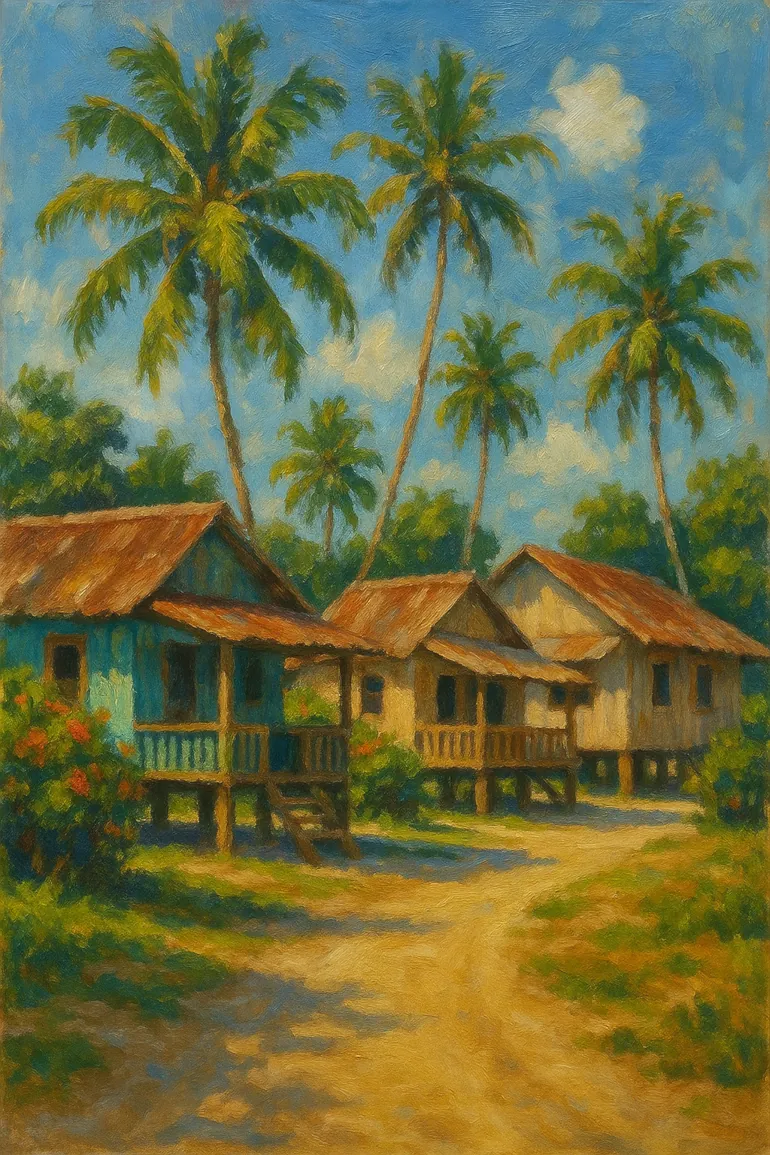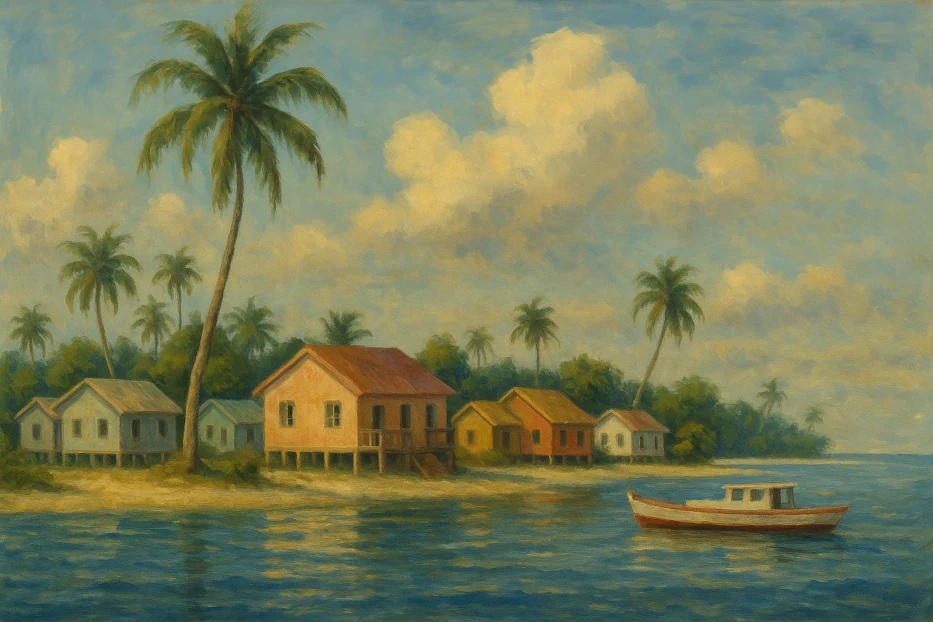If you’ve never heard of Tuvalu, you’re not alone—tucked away in the middle of the Pacific Ocean, this tiny island nation rarely makes the headlines.
In 2023, only about 3,000 people visited Tuvalu, making it the least visited country on the planet. But what Tuvalu lacks in tourists, it more than makes up for in charm, resilience, and beauty.
Tuvalu is a string of nine low-lying coral atolls and islands halfway between Hawaii and Australia. Altogether, they cover only about 25 square kilometers (10 square miles)—so small that some travelers say you can walk around the main island, Funafuti, in a single afternoon. It stretches just 12 kilometers (7 miles) from end to end. In fact, there is only one main street running along it—just a narrow strip of road where locals ride motorbikes, wave to neighbors, and haul their fresh-caught fish.
Life here is simple, and for many visitors, that’s exactly the appeal. There are no towering resorts, shopping malls, or luxury spas. Instead, Tuvalu has just four small hotels and a few guesthouses. Credit cards don’t work here, and everything is paid in cash. There are no ATMs, so you’d better bring enough Australian dollars to last your stay.
Getting to Tuvalu is part of the adventure. The only way to fly in is via Fiji, with Fiji Airways operating a small propeller plane to Funafuti International Airport just once or twice a week. Since 2018, there has been a new international terminal: modest but functional. Despite this, space is limited on the island, and the runway itself doubles as a community playground and meeting place when flights aren’t operating. In the evenings, kids kick soccer balls across the runway, teenagers play volleyball, and elders gather to talk. When a plane is about to land, a fire engine sounds its siren to warn everyone to clear the area.

Despite its size, Tuvalu’s beauty is immense. The turquoise lagoon shimmers under the equatorial sun, and the beaches are untouched and almost always empty. If you snorkel, you’ll drift over brilliant coral reefs and schools of colorful fish. A walk along the shoreline will likely be interrupted by friendly greetings—Tuvaluans are famously warm and curious about visitors.
But beneath the tranquility lies a serious worry. Tuvalu is one of the most vulnerable countries in the world to climate change. Its highest point is only about 4.5 meters (15 feet) above sea level, and every year the ocean creeps a little closer. Rising tides and stronger storms are already flooding parts of the islands. Many families are forced to think about leaving. In recent years, more and more Tuvaluans have emigrated to New Zealand and Australia, hoping to build more secure futures for their children.
Yet, despite the challenges, there is a powerful sense of pride and identity here. The culture is deeply rooted in Polynesian traditions. You’ll often see women weaving mats and fans from pandanus leaves or hear the rhythmic beat of traditional dance music echoing across the water. Guests are frequently invited to watch performances or share a meal of taro, breadfruit, and fresh tuna.
Direct Ferries
Routes, Schedules, Prices
Ferries in Australasia
Visiting Tuvalu doesn’t require a visa for most nationalities, which makes the journey easier in theory. But in practice, few make the effort. With so little infrastructure, no big attractions, and a long flight over endless ocean, Tuvalu remains off nearly everyone’s radar. And that is exactly why those who do come often feel they’ve stumbled on a secret.
Here, the only street runs past pastel houses on stilts, a modest government building, a couple of shops, and the country’s tiny post office. There are no traffic lights, just the hum of scooters and the rustle of coconut palms in the wind. If you want to disconnect from modern life and experience a place where community and nature still set the rhythm, Tuvalu is the perfect escape.
For the few who venture to these remote atolls, Tuvalu is more than just the least visited country. It is a place where the ocean shapes every aspect of existence, where resilience is woven into daily life, and where a fragile paradise still endures against the rising tide.

